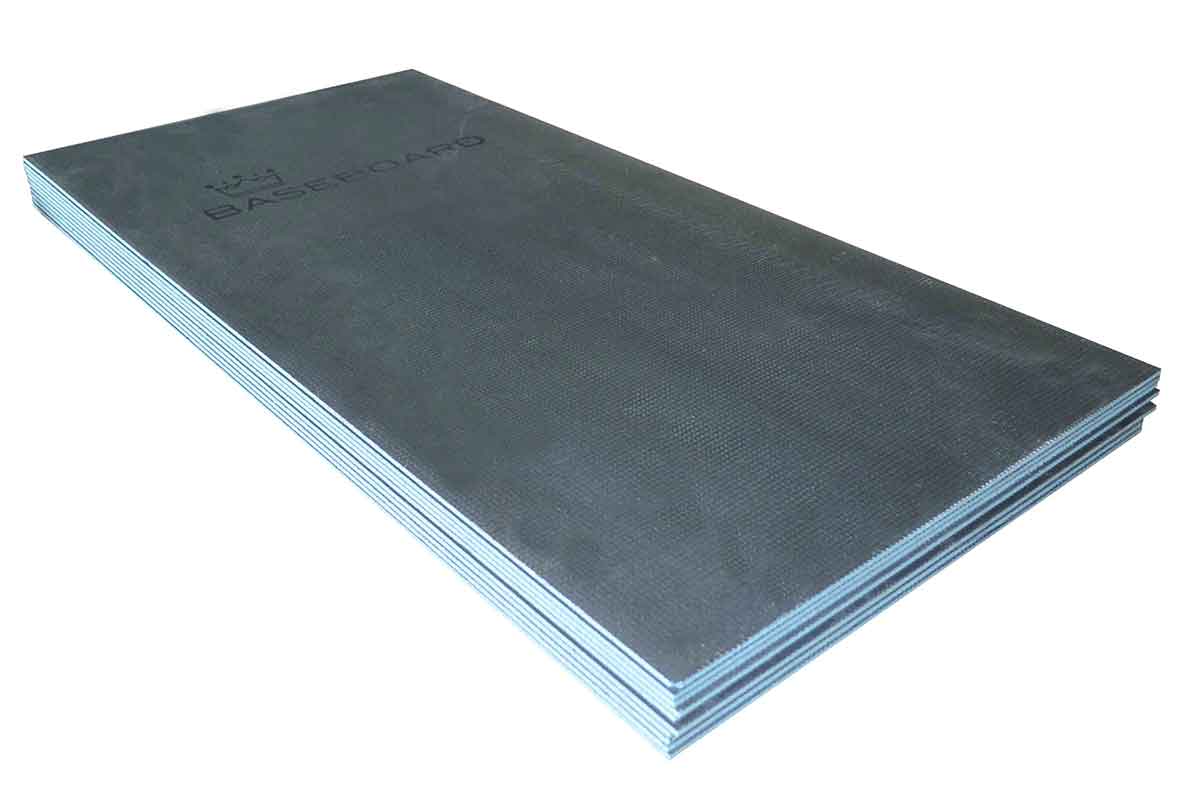
Whether you are thinking of tiling a floor, wall, shower enclosure or wetroom, it is important to ensure that an effective substrate is in place. A level and even substrate will improve the longevity and durability of the tiled surface, however plywood, plaster and MDF are all susceptible to damage, rot and warping.
A great way to overcome these difficulties is to use tile backer boards, which guarantee to create the solid surface you need for tiling. In this guide we will take a look at tile backer boards, so that you can decide which is the right option for your tiling project.
What exactly are tile backer boards?
Essentially, tile backer boards are prefabricated sheets which are often manufactured from cement and fibreglass, to create a strengthened and stabilised surface which is ready for tiling. These materials work together to provide a surface with high thermal insulation properties, making them a great choice for properties with underfloor heating thanks to the minimal heat transfer.
The panels are available in a range of sizes and thicknesses, which are ready to use on top of metal, timber stud work and existing walls and floors. As soon as the boards are installed the surface will be ready for tiling, although they can also be used with tanking kits to create a fully waterproof surface which is ideal for tiled areas in bathrooms, showers and wetrooms.
Many tilers choose these cement-based boards because of their lightweight design, which ensures they are easy to handle and cut without compromising on stability or strength.
For more information about our Baseboard tile backer boards, please take a look at the Baseboard Product Focus
What is the difference between using tile backer boards and plywood?
There have been significant changes made to the British Standard 5385-1: 2018, which means that wood-based and plywood sheets are no longer advised for use in fixing tiles. This is because since plywood was first introduced the quality of the sheets has significantly decreased, and the stability of the plywood can no longer be guaranteed.
If moisture is able to permeate the wood it will eventually lead to failure of the tiles surface, in addition delamination and resin bleed. In comparison, tile backer boards are specifically designed for use in wet, damp and humid environments.
How to install tile backer boards
For more information on how to install tile backer boards, take a look at our Baseboard video:
If you would like to find your nearest stockist of our tile backer board range, or to stock any of our products, please contact our team today.

